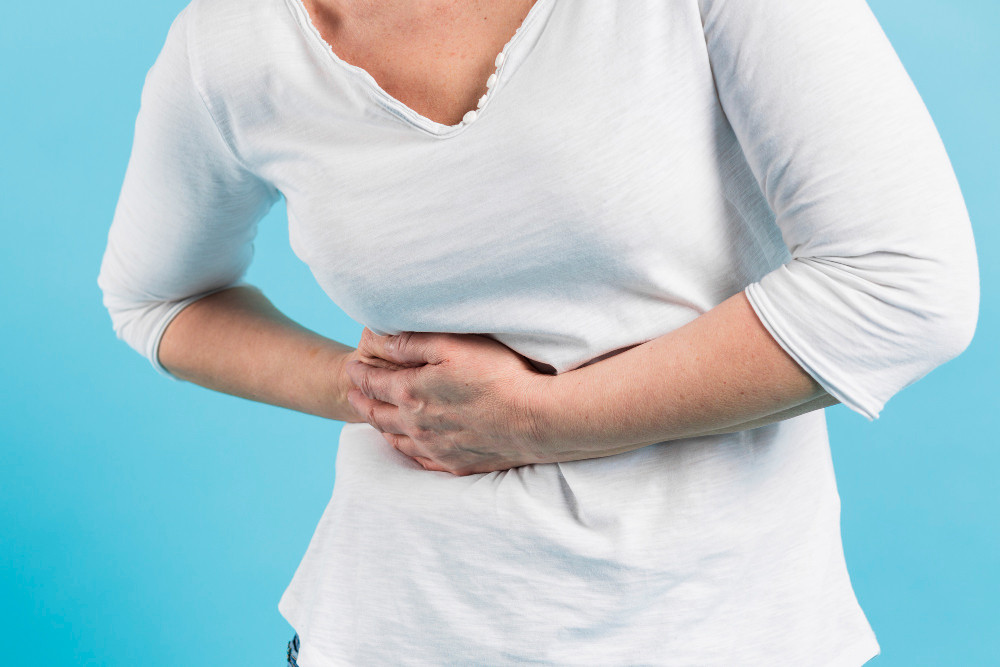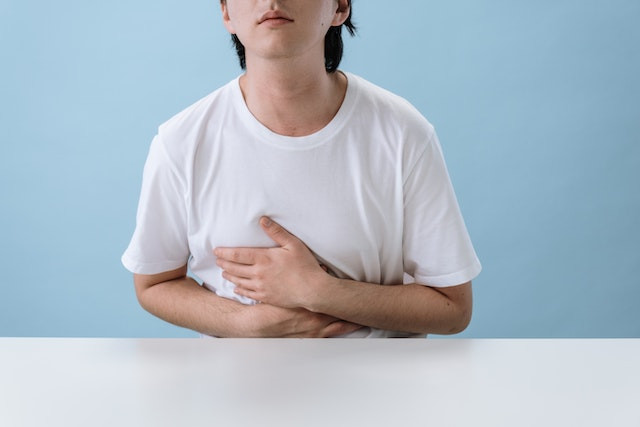Fatty liver atau perlemakan hati adalah kondisi di mana organ hati menyimpan lemak berlebihan. Pada tahap awal kondisi ini tidak menimbulkan gejala sehingga banyak orang tidak menyadari jika mereka mengalami perlemakan hati.
Namun ketika hati mulai mengalami peradangan cukup parah, kondisi ini dapat berkembang menjadi sirosis hati. Menjalani gaya hidup sehat dapat membantu mengendalikan kondisi perlemakan hati agar tidak semakin parah.
Apa Itu Fatty Liver (Perlemakan Hati)?
Berdasarkan jenisnya, perlemakan hati bisa terbagi menjadi dua jenis yaitu non alcoholic fatty liver disease (NAFLD) yang tidak disebabkan oleh konsumsi alkohol dan alcoholic fatty liver disease (AFLD) yang disebabkan oleh kebiasaan mengonsumsi alkohol.
Belum diketahui dengan pasti penyebab perlemakan hati, namun pada NAFLD beberapa faktor risiko yang dapat menyebabkan perlemakan hati antara lain tingginya kadar kolesterol, mengonsumsi makanan yang memiliki kalori tinggi, dan obesitas. Sedangkan untuk perlemakan hati yang disebabkan oleh alkohol, hal ini terjadi akibat proses penguraian alkohol yang menghasilkan zat yang berisiko merusak sel hati dan memicu peradangan.
Pada tahap awal, fatty liver tidak menimbulkan gejala, namun ketika peradangan semakin parah, pengidapnya dapat mengalami gejala berupa:
- Nyeri perut sebelah kanan atas
- Penurunan berat badan
- Pembengkakan pada kaki dan perut
- Merasa mudah lemah dan lelah
- Tidak nafsu makan
- Jaundice (penyakit kuning)
Baca Juga: Waspada, Sering Makan Gorengan dapat Menyebabkan Perlemakan Hati (Fatty Liver Disease)
Gaya Hidup yang Dianjurkan untuk Pengidap Fatty Liver
Kondisi fatty liver biasanya baru diketahui ketika menjalani pemeriksaan ke dokter. Selain pemberian obat-obatan, dokter akan merekomendasikan perubahan gaya hidup sehat untuk mengendalikan perkembangan perlemakan hati. Rekomendasi dokter pada pasien dapat berbeda-beda, tergantung pada gaya hidup pasien sehari-hari dan kondisi kesehatan pasien secara keseluruhan.
Beberapa gaya hidup yang dianjurkan antara lain:
Olahraga
Rutin berolahraga dapat membantu mengurangi jumlah lemak di hati dan meredakan peradangan. Beberapa latihan yang bisa Anda lakukan antara lain latihan kekuatan, angkat beban, dan aerobik. Lakukan latihan aerobik intensitas sedang hingga tinggi secara rutin selama 150 menit per minggu atau 30-60 menit per hari selama 5 kali seminggu untuk mendapatkan hasil optimal.
Menjaga pola makan
Penting bagi pengidap fatty liver untuk memerhatikan makanan yang dikonsumsi. Salah satu pola diet yang dianjurkan adalah diet Mediterania yang mengombinasikan makanan yang membantu mengurangi lemak di hati seperti lemak sehat, antioksidan dan karbohidrat kompleks.
Makanan yang sebaiknya dikonsumsi pengidap fatty liver antara lain:
- Makanan laut
- Buah-buahan
- Biji-bijian utuh
- Kacang-kacangan
- Minyak zaitun
- Sayuran
- Alpukat
Sementara itu makanan yang perlu dihindari adalah makanan yang mengandung lemak jenuh seperti:
- Daging unggas dengan lemak
- Keju tinggi lemak
- Daging merah
- Yoghurt
- Makanan yang dipanggang dan digoreng
- Makanan atau minuman manis atau mengandung gula tinggi
Menjaga pola makan yang diimbangi dengan olahraga dapat membantu menurunkan berat badan. Pada fatty liver, menurunkan 5% berat badan dapat membantu menurunkan lemak di hati. Penurunan berat badan antara 7-10% berat badan dapat mengurangi peradangan dan risiko cedera pada sel-sel hati.
Baca Juga: Sama-Sama Menghilangkan Lemak, Ini Beda Liposuction dan Tummy Tuck
Berhenti minum alkohol
Bagi pengidap fatty liver ASLD yang disebabkan oleh kebiasaan minum alkohol, sebaiknya berhenti sama sekali dari kebiasaan tersebut. Jika kebiasaan ini masih dilanjutkan, penguraian racun dari alkohol dapat memperberat kerja hati sehingga membuat kerusakannya semakin parah.
Rutin melakukan pemeriksaan kesehatan
Pengidap fatty liver sebaiknya rutin melakukan pemeriksaan kesehatan, termasuk di dalamnya melakukan pemeriksaan kadar gula darah dan kolesterol. Kadar gula darah dan kolesterol tinggi dapat meningkatkan risiko terjadinya fatty liver. Untuk mengendalikan kadar gula darah dan kolesterol, dokter dapat meresepkan obat-obatan dan merekomendasikan perubahan gaya hidup sehat sesuai dengan kondisi Anda.
Fatty liver di tahap awal biasanya tidak menunjukkan gejala. Perubahan gaya hidup yang tepat dapat mendukung proses penyembuhan dan mencegah kerusakan hati semakin parah. Jika Anda memiliki masalah pada organ hati sebaiknya konsultasikan ke dokter atau manfaatkan fitur konsultasi yang terdapat pada aplikasi Ai Care.
Mau tahu informasi seputar nutrisi, makanan dan tips diet lainnya? Cek di sini, ya!
- dr Nadia Opmalina
WebMD Editorial Contributors. Diet and Lifestyle Tips to Reverse Fatty Liver Disease. Available from: https://www.webmd.com/hepatitis/fatty-liver-disease-diet
Watson, S., Tabackman, L. (2024). 10 Foods to Include in a Healthy Liver Diet. Available from: https://www.healthline.com/health/fatty-liver-diet
The Healthline Editorial Team., Seladi-Schulman, J. (2023). Available from: https://www.healthline.com/health/fatty-liver#treatment
Health Direct. Fatty Liver. Available from: https://www.healthdirect.gov.au/fatty-liver#












